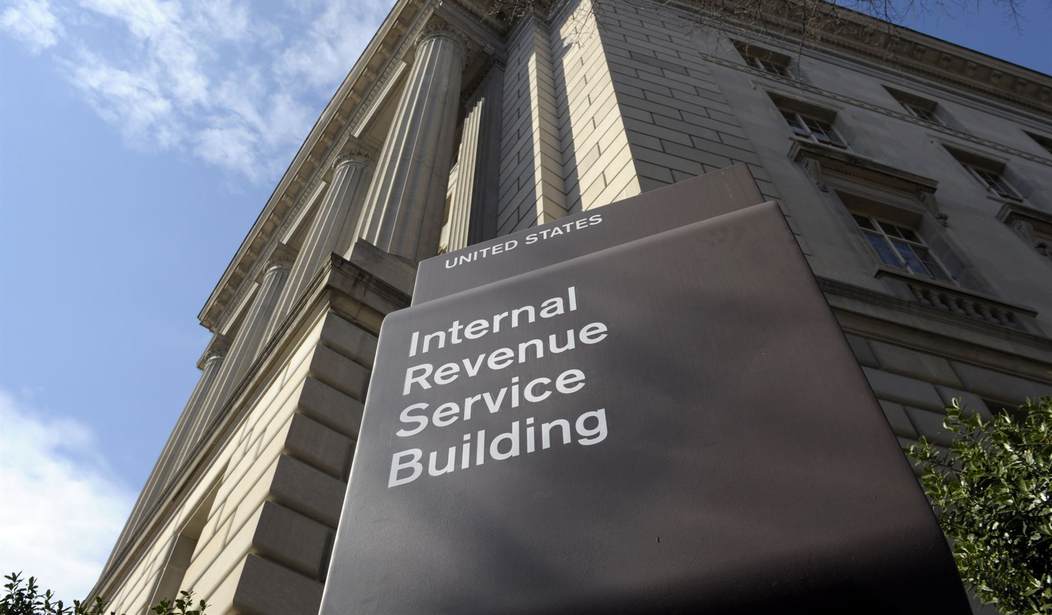We live in a time when Americans’ faith in institutions is chronically low. One institution that seems to be enjoying lingering faith from Americans, despite its unpleasant role is the Internal Revenue Service.
Taxpayers' trust in the IRS to fairly enforce tax laws is reportedly at 66%, according to a 2020 survey conducted by the IRS itself – down from 72% in 2014. The 66% number is undoubtedly too high because the survey was not independent and was done before Americans had seen one disturbing headline after another about the IRS’s oppressive tactics.
These deeply concerning incidents coincide with the appointment of a new IRS Commissioner who has made restoring taxpayers' trust a top priority. These issues threaten the credibility of both the Commissioner and the agency itself, casting a shadow that could irreparably tarnish their standing.
One of the most politically explosive and high-profile cases that has come to the forefront involves a tax investigation of Hunter Biden. Whistleblowers have alleged that the president's son received preferential treatment in an IRS probe into tax evasion, with the agency deviating from its normal investigatory processes to “benefit the subject.” While Hunter Biden recently agreed to plead guilty to “willful failure” to pay over $200,000 in taxes on income exceeding $3 million from foreign business deals in 2017 and 2018, the whistleblower complaints suggest that any other American would have faced a much tougher investigation.
In another disquieting instance, journalist Matt Taibbi, who uncovered collusion between Twitter and the federal government during the 2020 election, testified before Congress about his findings. On the same day, he received an unexpected visit from an IRS agent, claiming that his tax returns for 2018 and 2021 had been rejected due to concerns of identity theft. Taibbi has substantial evidence to refute the IRS's claims, but the timing raises questions. As Representative Jim Jordan put it, “the IRS's actions could be interpreted as an attempt to intimidate a witness before Congress.”
Recommended
More recently, an IRS agent allegedly resorted to deceptive tactics, providing a false name to enter the home of an ordinary Ohio taxpayer. The agent confronted the taxpayer about alleged delinquent tax filings and, when challenged about the dubious tactics, brazenly claimed the authority to enter “anyone's house at any time.”
While the media and lawmakers rightly focus on these attention-grabbing cases, there is a lesser-known controversy unfolding in the U.S. Tax Court. Legal experts are shocked at the IRS misbehavior exposed by this case, which could have serious ramifications for the agency and further damage its already compromised reputation.
In this case, Lakepoint Land Group, a real estate investment partnership, claimed tax benefits for conserving several hundred acres of Georgia land in 2013. A couple of years later, the IRS began auditing Lakepoint and in its audit determinations decided that the partnership’s land appraisal was grossly over-valued and that 100% of its conservation easement deductions should be disallowed. Furthermore, the IRS imposed a gross mis-valuation penalty on the partnership, which, if upheld by the Courts, would mean the partnership would have to pay the Government many millions in over-valuation penalties. Unfortunately for the IRS and according to robust evidence presented by Lakepoint to the Court, the IRS not only failed to follow congressional legislation on when and how such a penalty should be assessed but much worse, Lakepoint also alleges IRS agents illegally falsified and backdated documents to cover up this failure, all the while senior attorneys at IRS Chief Counsel attempted to cover up their subordinates’ misrepresentations.
As one example of the evidence presented by Lakepoint to the Court, there are emails obtained by Lakepoint's legal team in which an IRS supervisor acknowledged the magnitude of the problem, saying the Revenue Agent missed the deadline for obtaining supervisory approval for the over-valuation penalty was a “HUGE oversight.”
According to Rod J. Rosenstein, representing Lakepoint in a Freedom of Information Act complaint, the IRS attempted to create a false appearance of its compliance with the rules set by Congress to safeguard citizens.
The agency has acknowledged the errors but has sought to downplay their severity, stating that the IRS faults were unintentional and should not invalidate the penalties. However, it's important to note that signing a fraudulent document constitutes a felony. Moreover, the IRS filed a legal motion with the Tax Court on the Lakepoint penalty using a back-dated document, and where the result of the motion was for the Tax Court Judge to issue a ruling against Lakepoint based on that false pleading. Taxpayers should pay close attention as the Lakepoint lawyers seek to uncover exactly who at the IRS knew about this fraud by the agency and when they knew it.
While not as high-profile as Hunter Biden or the prospect of 87,000 new armed agents being unleashed on taxpayers, the potential prosecution of IRS agents for fraud in the Lakepoint case nonetheless represents a grave threat to the agency and its new Commissioner. If the agency won’t rectify this misconduct, there’s really no point in conducting surveys about how much people like the IRS because no one will take such surveys seriously.

























Join the conversation as a VIP Member